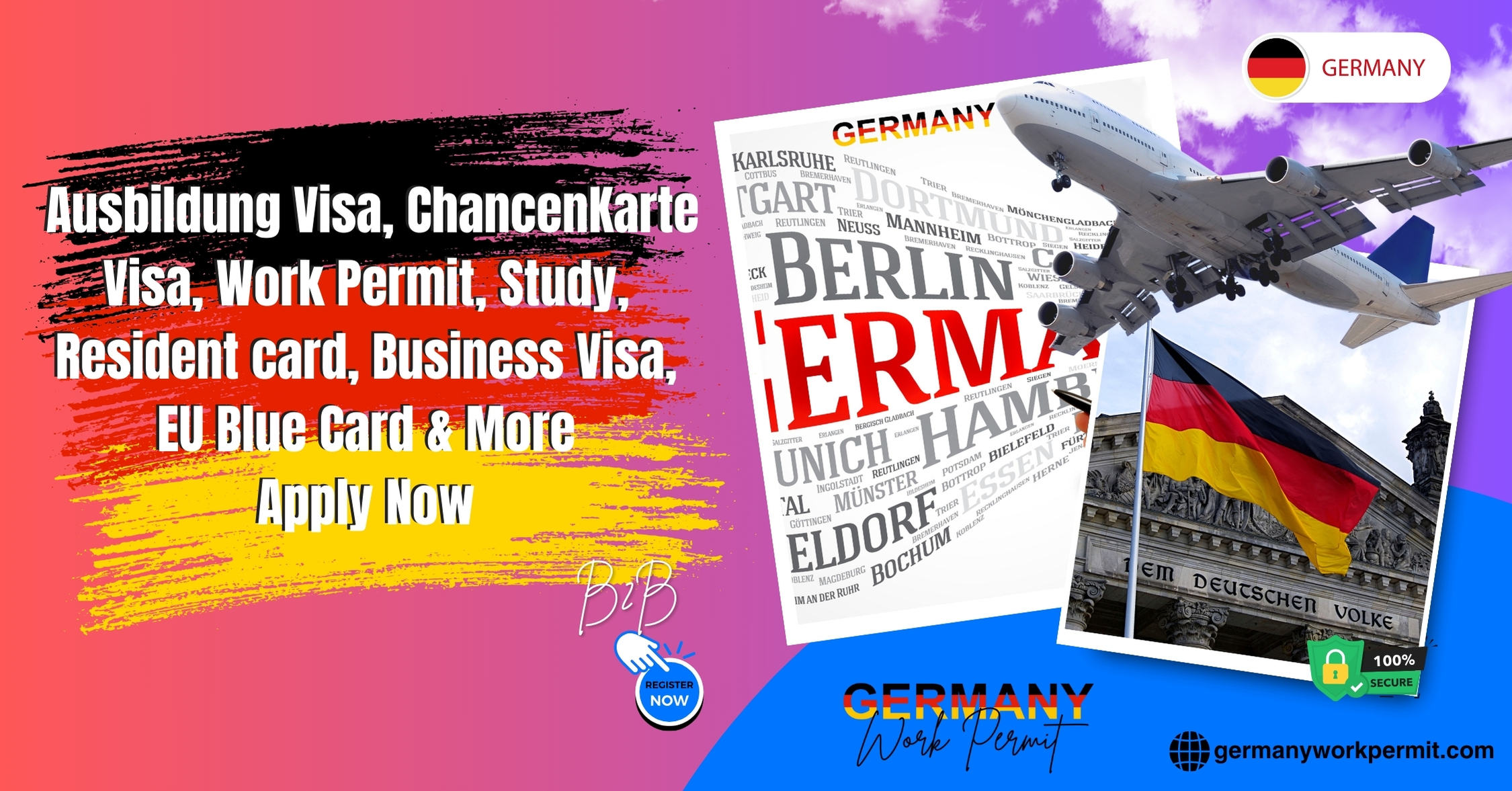Germany Work Permit
1. Understanding the Germany Work Permit
A work permit allows foreign nationals to live and work in Germany. The type of permit you need depends on your qualifications, job offer, and nationality. Germany offers several pathways, including general employment, highly skilled employment, and the EU Blue Card.
2. Eligibility Requirements
To apply for a work permit, you must meet the following criteria:
- Job Offer: You must have a confirmed job offer from a German employer.
- Qualified Occupation: The job must align with your qualifications or experience.
- Labor Market Test (if applicable): For certain non-EU applicants, the employer may need to prove that no suitable EU candidate is available for the role.
- Salary Requirements:
- For the EU Blue Card: The gross annual salary must be at least €58,400 (2024 threshold), or €45,552 for shortage occupations like IT, engineering, or healthcare.
- Recognition of Qualifications: If your profession requires specific qualifications, they must be recognized in Germany.
3. Types of Work Permits
- EU Blue Card: For highly skilled professionals with a job offer in a qualified profession.
- General Work Permit: For those meeting job-specific requirements but not qualifying for the EU Blue Card.
- Job Seeker Visa: Allows individuals to enter Germany to find a job (valid for six months).
- Researcher Visa: For academic researchers with contracts at recognized institutions.
- Self-Employment Visa: For entrepreneurs and freelancers meeting specific business and economic contribution criteria.
4. Application Process
Step 1: Prepare Your Documents
Gather all necessary documents:
- Valid passport
- Job offer/contract from a German employer
- Proof of qualifications (diplomas, certificates, etc.)
- Curriculum Vitae (CV)
- Health insurance coverage
- Proof of financial means
- Visa application form
- Cover letter explaining your job role and intentions
- Proof of language proficiency (if required)
Step 2: Submit Your Application
- Apply at the nearest German embassy or consulate in your home country.
- Submit your application and pay the processing fee (approximately €75).
Step 3: Wait for Processing
- Processing times vary but generally take 4-12 weeks.
Step 4: Travel to Germany
- Once your visa is approved, travel to Germany and register at the local Residents’ Registration Office (Bürgeramt).
- Apply for a residence permit at the Foreigner’s Office (Ausländerbehörde).
5. Special Categories and Pathways
- For IT Specialists Without Degrees: Proof of at least 3 years of professional experience in the field.
- Intra-Company Transfers: Employees of multinational companies may qualify for transfer-specific permits.
- Apprenticeships and Vocational Training: Germany offers work permits for trainees in recognized vocational programs.
6. Key Points for Employers
- Employers must ensure job offers comply with German labor law.
- In some cases, approval from the Federal Employment Agency (Bundesagentur für Arbeit) is required.
7. Renewal and Permanent Residency
- Work permits are typically valid for the duration of the employment contract.
- After five years of continuous residence and employment, you may apply for a settlement permit (permanent residency).
8. Frequently Asked Questions
Q1: Can I bring my family?
Yes, family reunification is possible. Spouses can work, and children can attend school.
Q2: Do I need to speak German?
For some roles, German proficiency is mandatory, while others, especially in IT or international companies, only require English.
Q3: How long can I stay on a job seeker visa?
The visa is valid for six months. If you secure a job, you can transition to a work permit.








